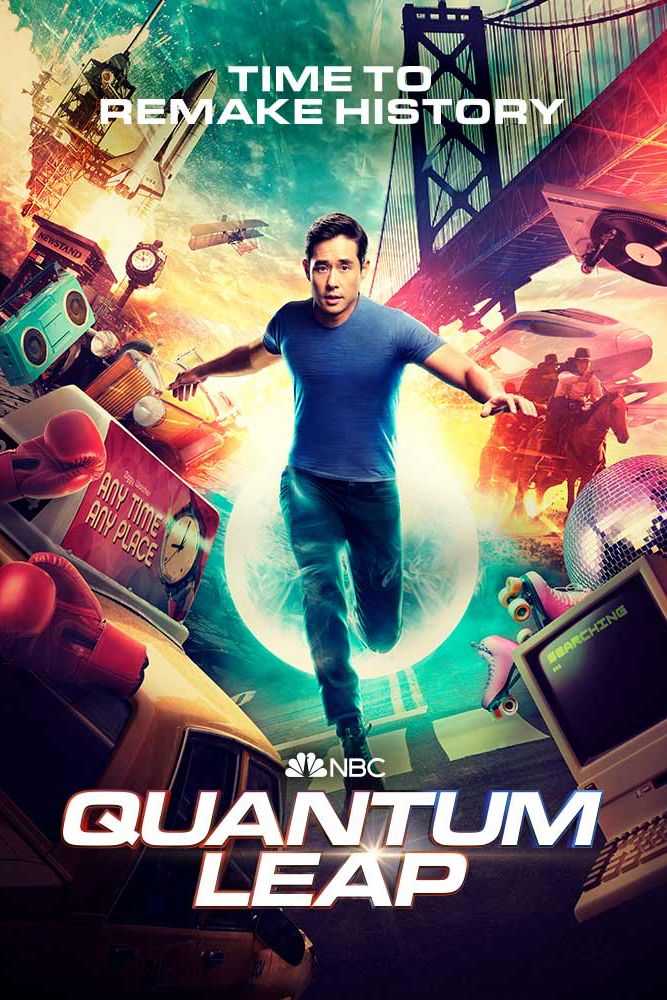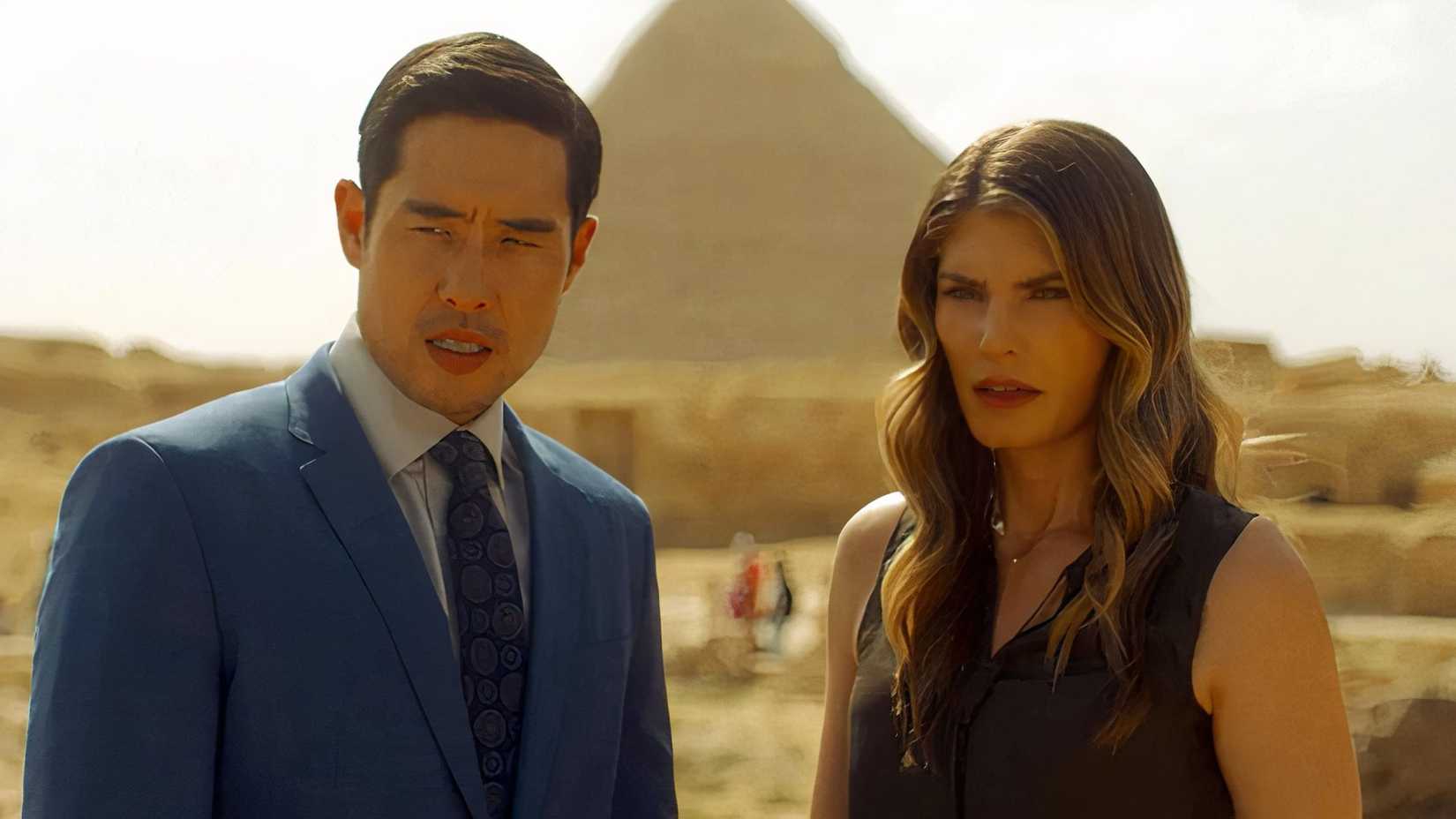New to Netflix on August 14, 2025, the oft-overlooked reboot of Quantum Leap deserves reappraisal. Running for two seasons and 31 episodes on NBC from 2022 to 2024, the time-traveling sci-fi TV series earned middling critical and audience reviews during its initial run, with many comparing it unfavorably to the inventive original series starring Scott Bakula and Dean Stockwell.
With a bit of time, distance, and a new perspective, perhaps Quantum Leap is worthier than its reputation suggests. After all, the quality of TV writing and filmmaking technology has advanced dramatically since the original series was created, potentially making the time-traveling action far more vivid and realistic than in the first iteration of the show (1989-1993). Comparing the reboot’s reception to that of its predecessor, it’s time to parse whether the Quantum Leap reboot is worth watching.
‘Quantum Leap’s Rebooted Premise
More of a revival than a page-one reboot, NBC’s Quantum Leap (2022) directly ties into the original time-travel TV series created by Donald P. Bellisario. The revival acknowledges the original lead character, Dr. Sam Beckett (Scott Bakula), a brilliant polymath assigned to lead the Quantum Leap project for the U.S. Department of Defense. 30 years ago, Beckett got lost inside the Quantum Leap accelerator that facilitates time travel and has not been found since.
In the present day, quantum physicist Dr. Ben Song (Raymond Lee) has been recruited to lead the newly reopened Quantum Leap program with the sole purpose of finding Dr. Beckett. But much like Dr. Beckett in the original series, Dr. Song often gets stuck in various epochs and begins living vicariously through the lives of total strangers who abide by many different laws, customs, cultures, and languages.
It’s a wonderful conceit for a TV show, with the original series capitalizing on the popularity of Doctor Who, Back to the Future, and other fantastical time-travel tales that empower the lead characters to alter the course of history for the better.
Yet, with far more technological advances that make time travel theoretically more feasible than before, the Quantum Leap reboot may have a scientific leg-up on its predecessor. The performances are nowhere near as convincing, but in terms of science and tech, it improves on the original through Ziggy, the upgraded supercomputer that Dr. Beckett created and Dr. Song encodes to find the missing physicist.
The ‘Quantum Leap’ Reboot’s Reception, Analyzed
The Quantum Leap revival ran on NBC for two seasons from 2022 to 2024. Despite reducing the episode count from 18 in Season 1 to 13 in Season 2, viewership declined. According to The Hollywood Reporter, Season 1 averaged 3.89 million viewers per episode, while Season 2 dropped to 3.56 million viewers per episode. While seemingly negligible, Quantum Leap dropped its TV rank from 58 to 66.
Beyond the waning viewership, Quantum Leap 2022 was overshadowed by the original in the eyes of most critics. The sci-fi revival holds a 58% Tomato Meter score on Rotten Tomatoes (14 fresh reviews, 10 rotten), with critics agreeing that:
“This more serialized reboot of Quantum Leap has enough heart to merit a look from viewers with the luxury of time, but it often forgets to have fun with the episodic structure that made the original a classic.”
Boasting a near-identical 57 Metascore, Quantum Leap has been received by critics as a heartfelt homage to the original with mediocre results. However, the show has more appeal among non-critics and general audiences, supported by its 72% Popcorn Meter RT rating and 6.3 IMDb score. While that hardly compares to the original Quantum Leap‘s widespread appeal (including a 91% Popcorn Meter rating, an 8.2 IMDb score, and six Primetime Emmy Awards), the revival deserves more praise than it initially received.
Why the ‘Quantum Leap’ Revival Deserves Another Look
While it’s impossible to divorce the time travel revival show from its inspiration, Quantum Leap is more deserving of praise than it has received. Although the central performances are not as strong, and the show has divided fans of the original for featuring a much different lead character, it’s still worth watching in 2025. One key reason is how the show updates several scientific aspects of the original.
For instance, the memory-losing “Swiss cheese effect” that Dr. Beckett experienced each time he used the Quantum Leap chamber has been reintroduced. This time, however, the holographic observer happens to be Dr. Song’s fiancée, Addison Augustine (Caitlin Bassett), which complicates their personal and professional bond. Rather than recycling for the sake of nostalgia, the new wrinkles feel fresh and meaningful without losing the original show’s spirit.
Another reason Quantum Leap holds more merit than the original is its timely exploration of AI. While the original series has no shortage of fun adventure, fantastic imagination, and grounded performances, the scientific anachronisms are quite glaring when viewed today. By contrast, the Quantum Leap revival excels with its scientific technology, topical advancements in artificial intelligence, and the quantum speed of convergence that is becoming more realistic by the day.
Deciphering whether Quantum Leap is worth watching now that it’s on Netflix, the verdict is a bit nuanced. Hardcore fans of the original should steer clear, while those who never saw the original should give it a shot. Fans of the original will likely be disappointed by a show that falls short of its predecessor. However, those unfamiliar with the time-traveling adventures of Sam Beckett and his sidekick, Al Calavicci, are likely to enjoy the revival more than those constantly comparing the two versions. Quantum Leap is streaming now on Netflix.

Quantum Leap
- Release Date
-
2022 – 2024
- Network
-
NBC
- Showrunner
-
Martin Gero
-

-

Caitlin Bassett
Addison Augustine
This story originally appeared on Movieweb



